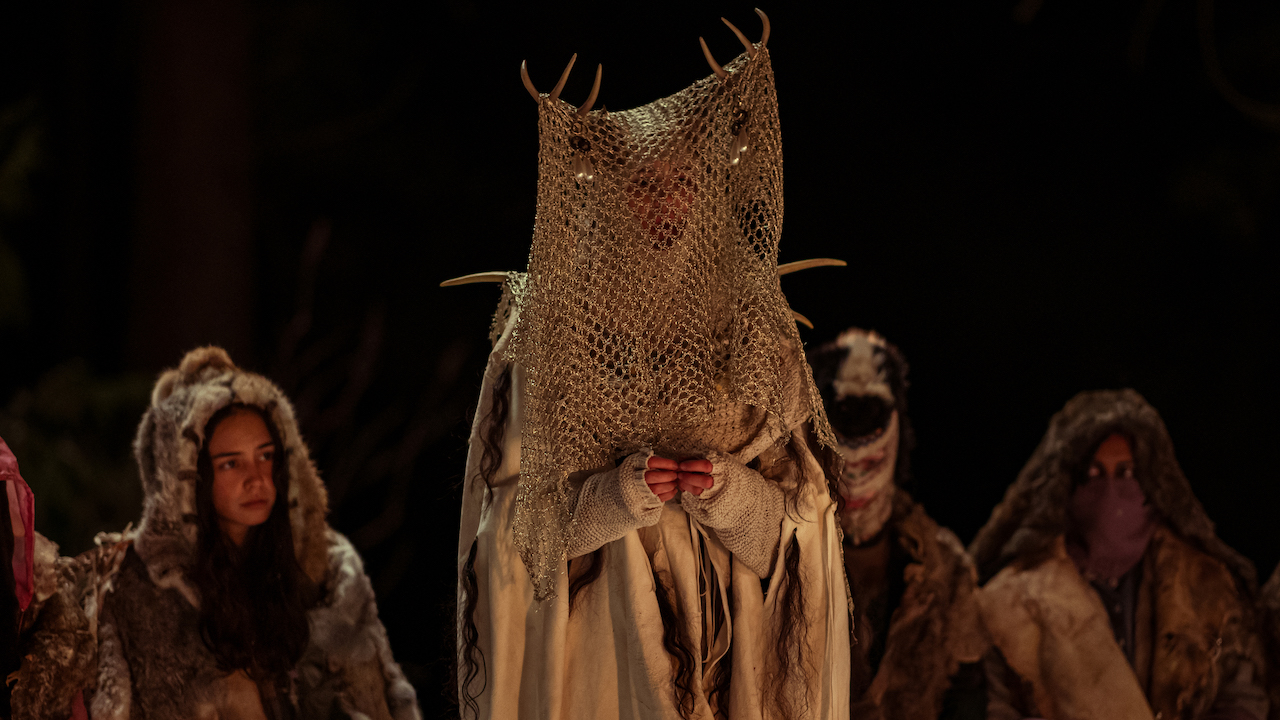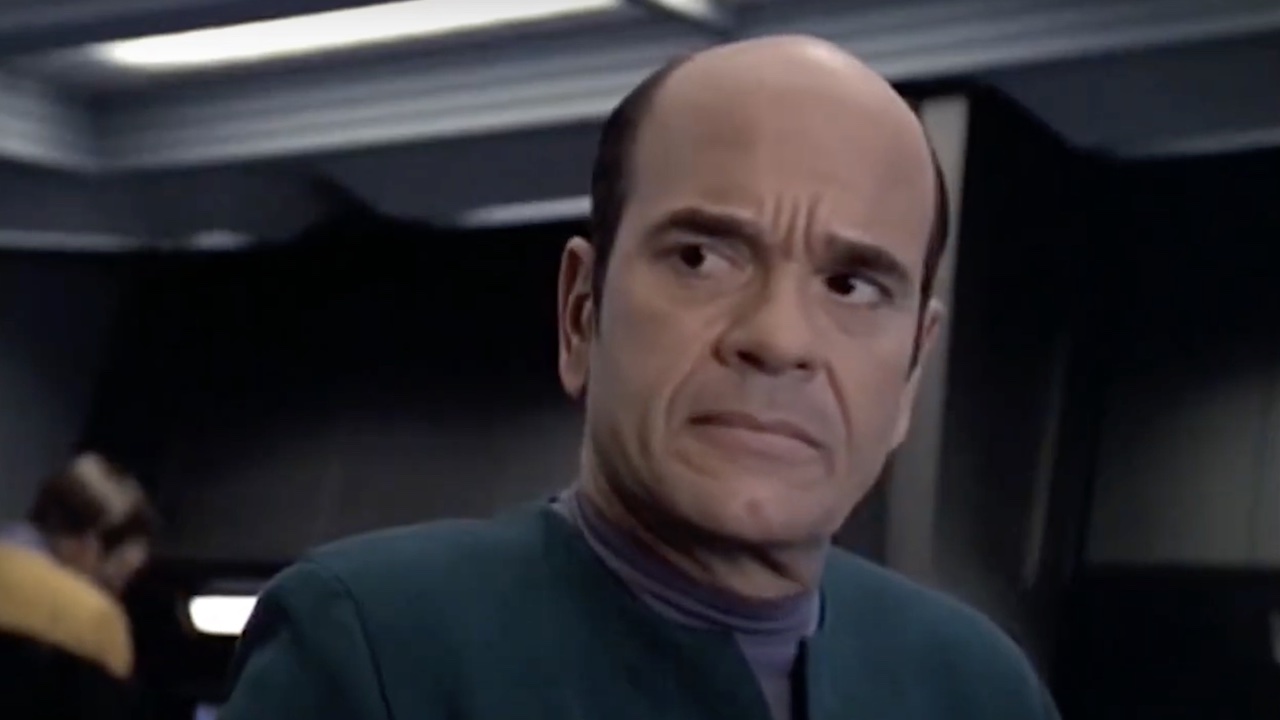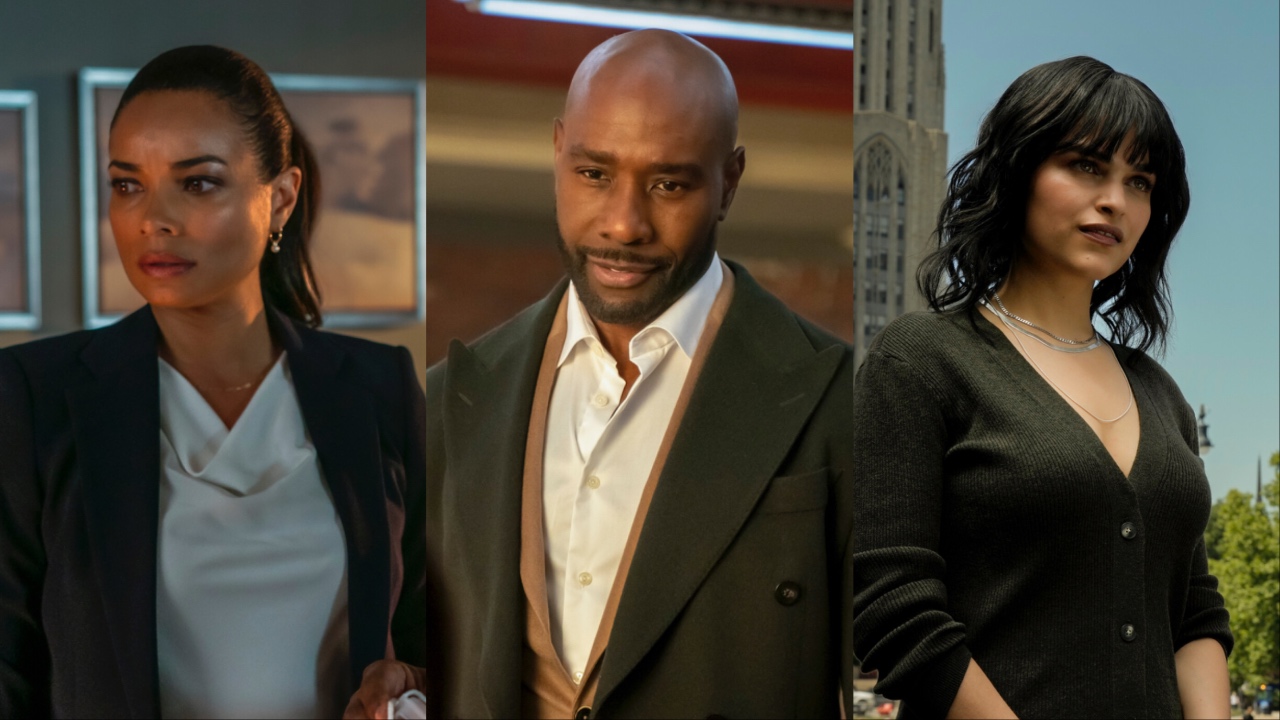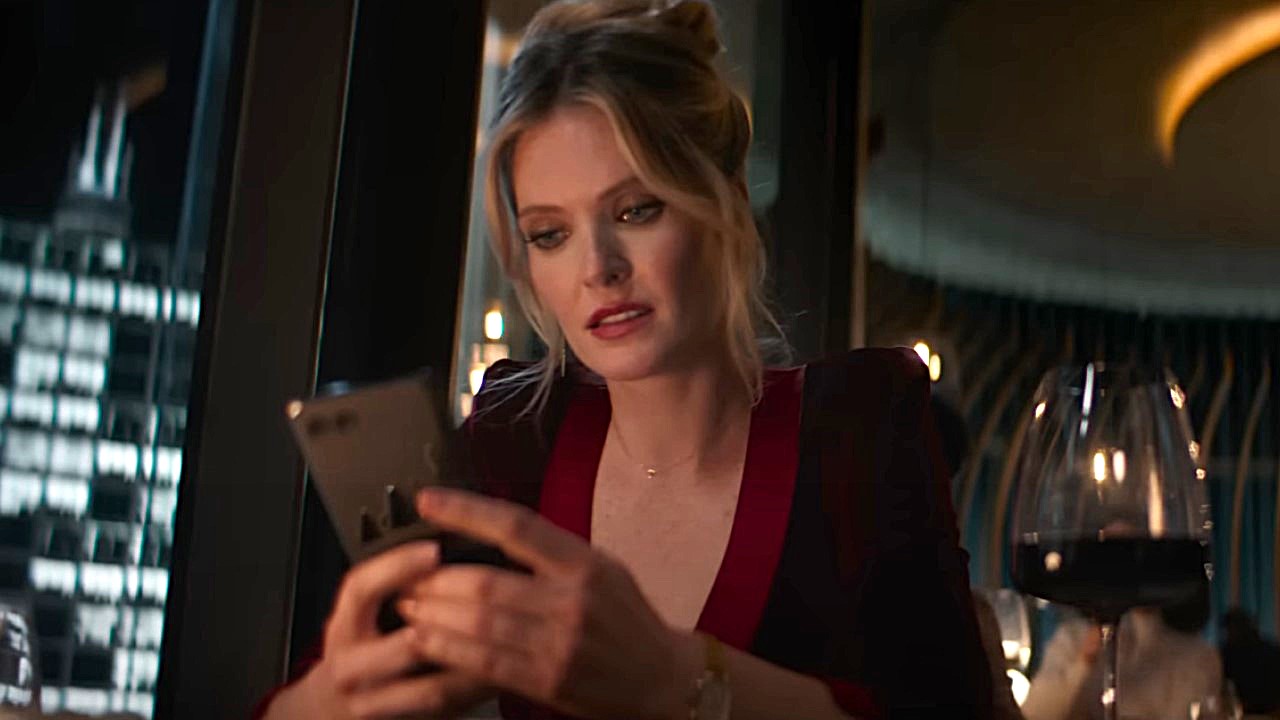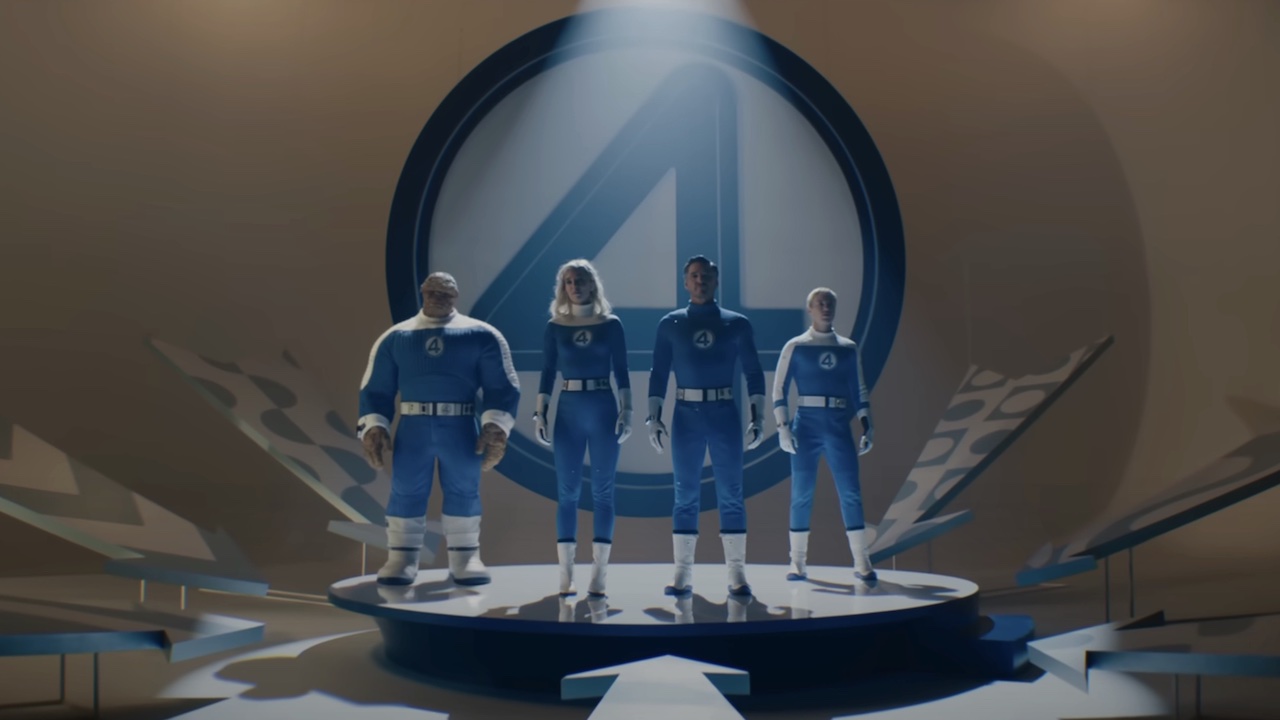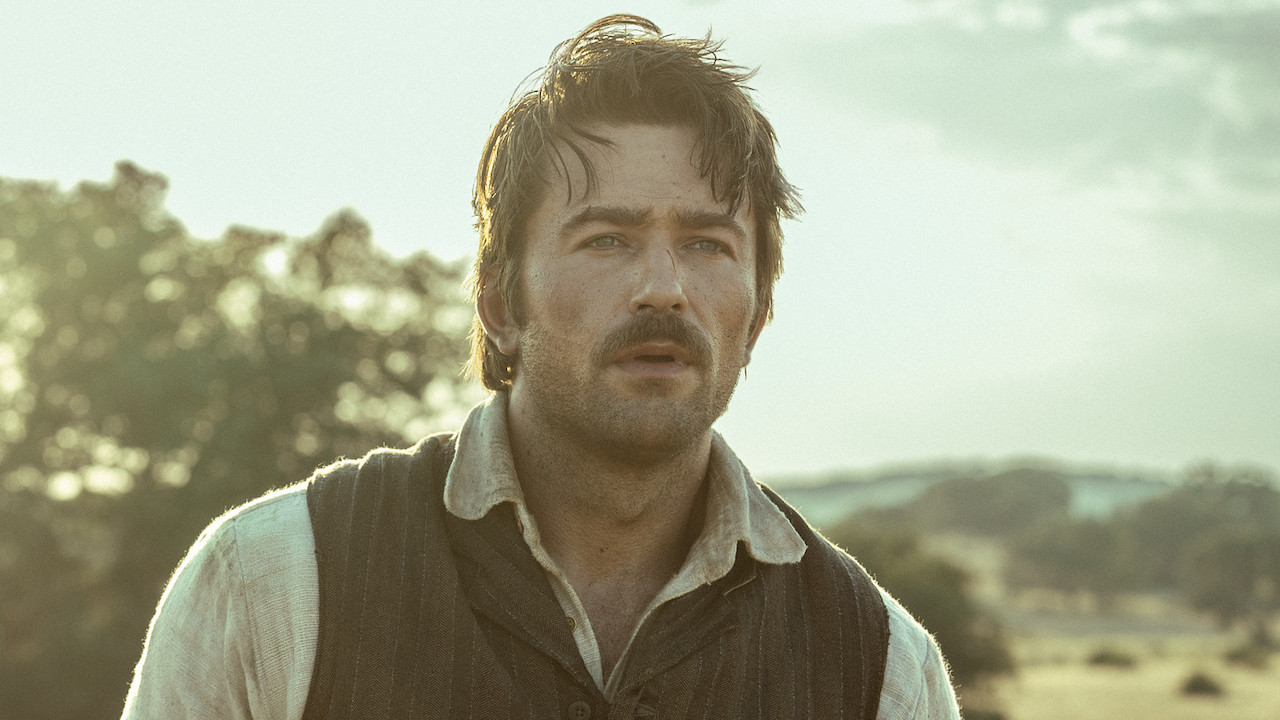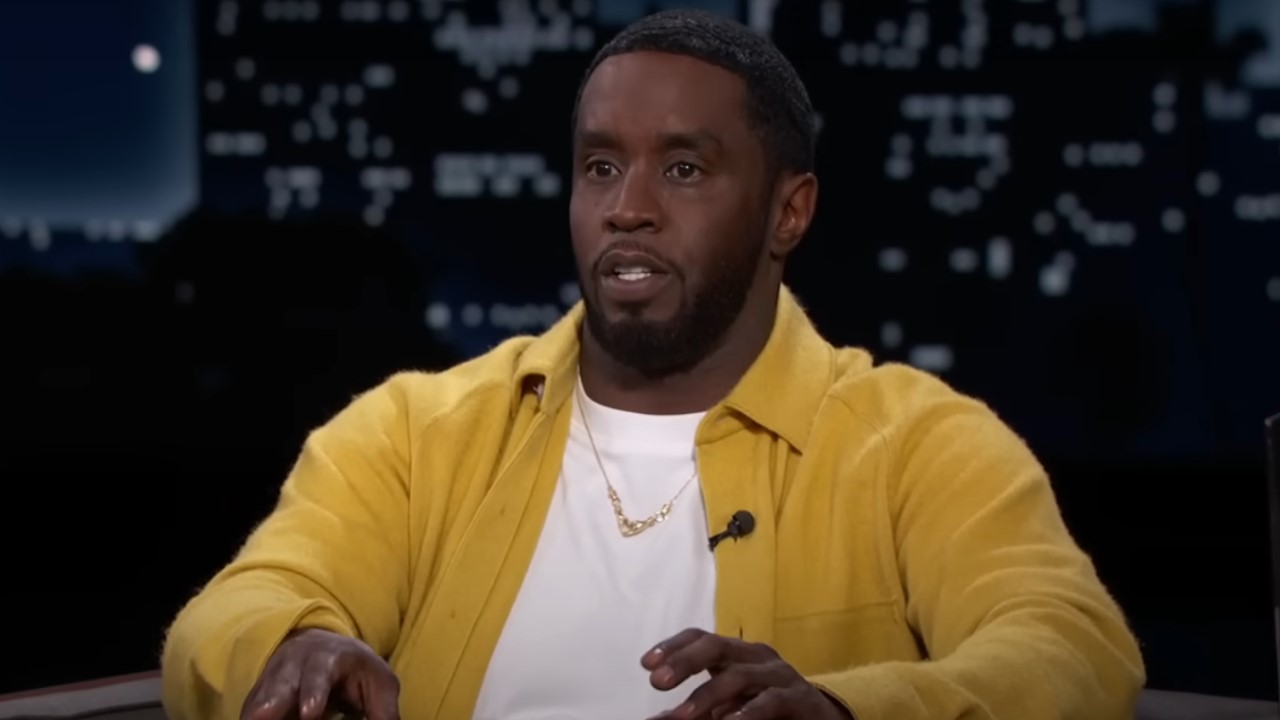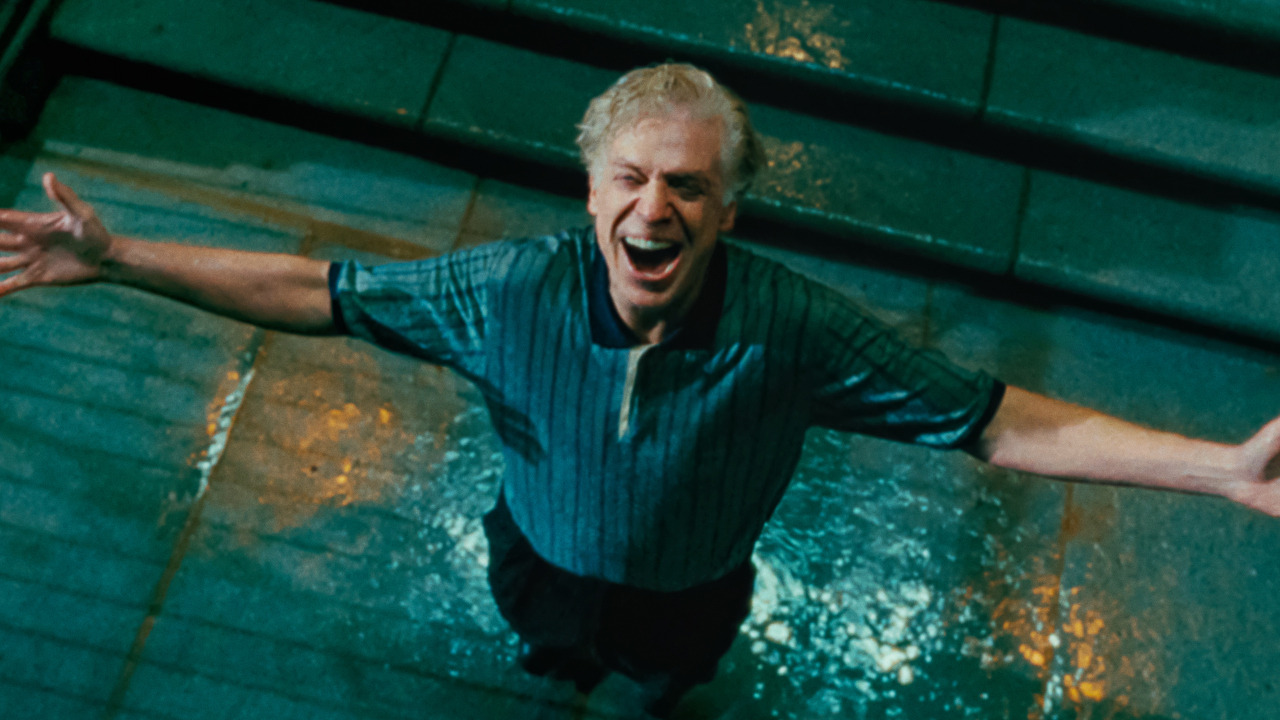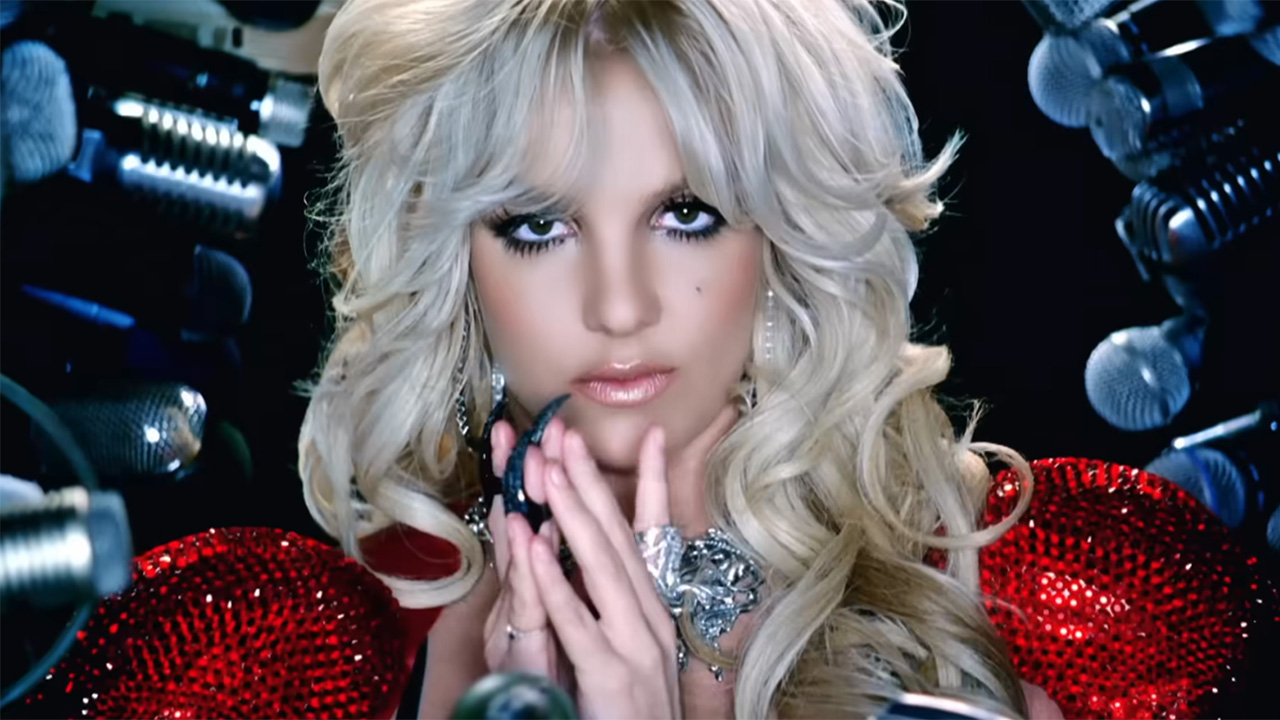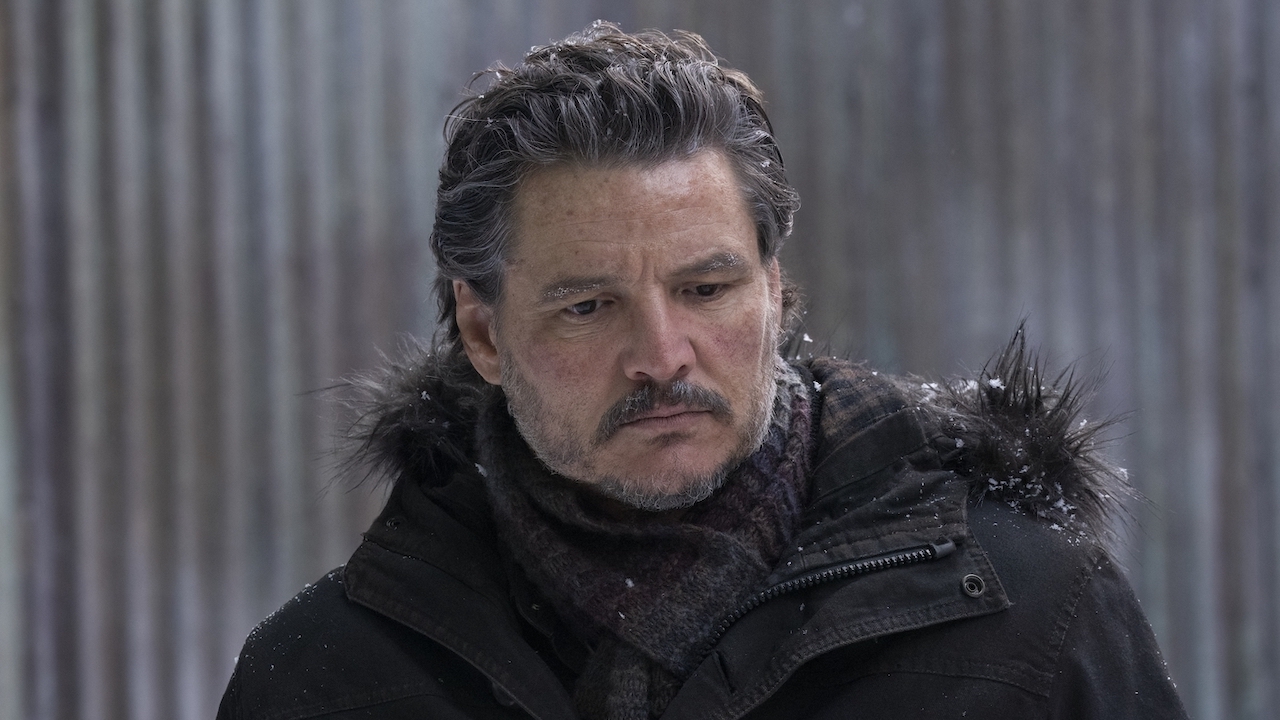Interview: Woody Allen And The Cast Of Whatever Works
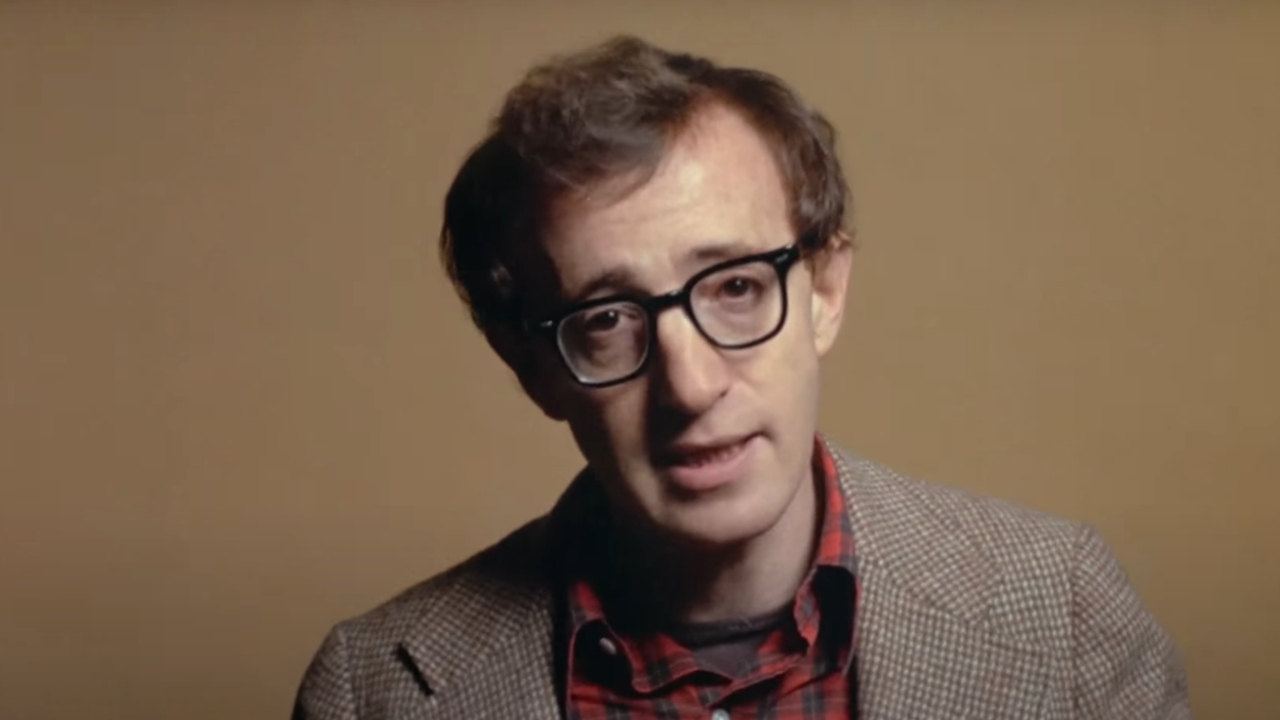
There's something oddly transfixing about seeing Woody Allen and Larry David together, even in the strange and sterile context of a packed press conference heavily moderated by an imposing publicist. Maybe it's their unmistakable New York accents, or the very fact that they're movie stars who look old, or that the two comedic masters don't really bother to play off one another over the entire 45 minute conference.
For Allen, whose comedy have never so much influenced the mainstream as run energetically alongside it, and David, who may very well have invented our current era of irony, their collaboration on Whatever Works is nothing more than an inspired bit of casting. Alongside co-stars Patricia Clarkson and Evan Rachel Wood, they gamely answered questions about the inspiration of New York, the role of Jewish comedians, and what you feel when you direct an actor in an Oscar-winning performance.
As you may be guessing, it was Allen who did most of the talking, which was wonderful. In the last few years, as he's spent most of his time offscreen and not giving many interviews, Allen has come to feel like a reclusive figure, a cultural touchstone not necessarily interested in throwing his voice into the fray. But Allen is as clever, as self-deprecating and as entertaining as ever, loath to take credit for the film's success but happy to talk about what led him to make it.
This is a long transcript, I know. But what Allen has to say not only about his own films, but the process of filmmaking and screenwriting in general, feels pretty priceless to me. And just like any good Woody Allen movie, there are also some good jokes in there too. Whatever Works hits theaters this Friday. Enjoy the interview below.
Larry, did you ever feel like you were Woody's stand-in, and were you ever tempted to act like him or imitate him?
Larry David: I never considered for a second that I would be playing him. I know it's a part that people would normally see him play, but I never considered that I would play him. Nor would he want me to play him. It just wasn't an issue at all.
Woody Allen: This is not a part that I could have played, even if I was younger. I had originally conceived this many years ago for Zero Mostel. Larry is able to do this kind of sardonic, sarcastic vitriolic humor and get away with it. There's something obviously built into him that they like it. Groucho Marx has this. They were never offended by Groucho. They were offended if he didn't insult them, he told me once. If I was to do that, I wouldn't be as graceful at it, and you would think that I was nasty. If I was insulting people and proclaiming my own genius and saying that people were cretins, you would not like me. But certain people can get away with it, and he's one that can. It's not something that I would ever do. When Zero died, I never thought for one minute of doing the part myself. I never though, oh, I've got a script here, and why can't I do it. I put it in the drawer, and were it not for an imminent possible actor's strike, I never would have taken it out of the drawer even to look at it. Juliette Taylor, my casting director, thought Larry could do it, and I agree completely.
CINEMABLEND NEWSLETTER
Your Daily Blend of Entertainment News
Larry, what was your reaction when you were first offered the part?
Larry David: This is not a good thing. This is not a very good idea. I was intimidated and I don't really like challenges. I don't like to be out of my comfort zone, which is about a half an inch wide. I called Woody and said, I don't know about this. I don't know if I can do this.
Was it like when you played the Producers part in Curb?
Larry David: No, that was pretend.
Melodie could be played very broad. You could go a million different ways with her. Was it in the script already to rein her in, or was that your own instinct?
Evan Rachel Wood: I think that's where Woody was really great, giving me the freedom to go as far as I wanted. I trusted him to tell me when to reel it in.
Patricia Clarkson: I think the beautiful thing about Woody is he, for reasons I'll never figure out, he has great trust in us. It's a beautiful freedom he gives you as an actor, which I think makes you a better actor. And he gives you confidence to go large and wide, and trust that you will actually be employed again after you've seen the film. He trusted that we could really stretch it big and still remain truthful.
Woody Allen: People always ask me over the years about performances in my movies, and they think I'm being facetious when I say this, but I'm not. I hire great people and then I get out of their way. They were great before they met me, they were great in my movie, and they're great in movies after me. I just don't want to mess them up. I hire them and then tell them that they're free to go. If they're doing something that i notice that's egregiously wrong for some reason, I'll say something to them. Say this needs to be a little more grim, a little louder or quieter. But that's it. If you hire good people, then they read the script, they understand it, they get it, that's why they take the job, and they do it. You look great as a director with the actors, but the truth is if you hire the right people, that's 99%. Evan I had seen very briefly in some things. She was great. I didn't know she could do a Southern accent. She said to me yes I can do one, but she didn't want to do it and show me. I just assumed, look, i've seen her in other movies, and she's not going to take the job and make a fool of herself. The first time I heard the accent she was doing was when we shot her. There was no rehearsal. I never haerd it in conversation. She just came and did it. Ed Begley Jr. didn't even know that he was supposed to be doing a Southern accent. We were on the set with him, and he was surprised. I got panicky for a moment, and he said oh, OK, and he made some kind of mental adjustment, and he was just great.
In the film Boris says he watches Fred Astaire films when he has panic attacks. What do each of you when you have panic attacks?
Larry David: I can't really say in a G-rated press conference.
Woody Allen: The only word I understood was Fred Astaire. Did you ask a dirty question? [Laughter, and an explanation] Oh, it was a perfectly benign question! I can speak for myself in this. I do exactly that kind of thing. you turn on something on television. For me it would probably be a ball game or something, something that's calming, where there's no sense of conflict. If I turned on a movie, I'd be full of self-loathing. Oh God, I make these movies, and there are so many great ones. I couldn't do that. But I could turn on a ballgame, and be very placid.
Larry David: I tend to stay with the panic. I embrace the panic. I know there's no getting out of it, even if i turn on a ballgame. I would still hear that sick psychotic voice going on in my head. I know there's nothing I can do.
Woody Allen: Perfect casting, right?
Patricia how did you prepare for your character?
Patricia Clarkson: I was born and raised in New Orleans, I'm a Southern girl through and through. I had a similar trajectory. I was a nice Southern girl, from a more progressive family than Marietta, but I do know that lady well, from being in the South for a long time. I just understood it in ways. At 19 I came to new York to pursue my art, and I arrived with very big hair that wouldn't fit through a door. Slowly it collapsed, and slowly the clothing became black. That's what happened to me, albeit at 19, not middle aged. But whatever works, right?
Whatever Works really talks about the magic of New York. I want to know about what New York has done for everyone here. What locations do you feel have a magic to film in?
Evan Rachel Wood: I did what Melody did, and I moved to New York when I turned 18, and i was filming Across the Universe. I was filming on the streets of New York for the first time and singing Beatles songs, and it changed my entire life. I don't know what I would have done if I hadn't made that movie. I spent a year here, and I felt like I knew who I was finally. This city really does something to you. I have a different experience every time I come here.
Larry and Patricia, could you also comment on some of your early New York experiences?
Larry David: I grew up in Brooklyn, and I lived in Hell's Kitchen from the time I got out of college 'til I moved to L.A. in my early 40s. I remember very distinctly the smell of urine as i left my front door. I remember having to take my shoe off before I came into my apartment to kill the thousands of roaches that were in my bathtub. I have very fond memories of it.
Patricia Clarkson: The first place I lived was the YMCA, because at Fordham University they didn't have dorms then. I was at the YMCA on 63rd. I remember on Friday nights there were a lot of young boys around, and I thought, did they just return from a YMCA camping trip? No... I have since left the YMCA. I'm a New Yorker now I guess. I love the West Village, I love downtown. I've lived downtown for a long time.
Larry David: I remember fighting with people every day because I couldn't get change for a dollar to get on the bus. Nobody wants to give me their change.
Woody Allen: My memories of New York are unrealistic. The New York that I grew up loving was, ironically enough, the New York of Hollywood movies, where people would live in the penthouses with the white telephones and come home at 5 in the morning with ermine draped over their shoulders. This was the New York that I knew. I grew up in Brooklyn, not far from Larry. I never knew New York as it really existed. For that you have to speak to Spike Lee or Martin Scorsese. I knew New York the way it appeared with popping champagne cork sand people dressed in tuxedoes and making very witty banter, and the elevators rising into the apartments directly. So that's the New York that I have depicted in my life, and have tried to live in my life. And it's caused me a lot of grief.
Woody you say you just get out of the actors' way. So when one of your actors wins an Oscar, do you feel aloof from that award? Do you feel you didn't contribute?
Woody Allen: I don't feel aloof from it. Aloof would mean feeling above it and superior to it. I don't feel that. But i don't feel they're getting this Oscar because I brought something out of them that nobody else could, or that wasn't in them. They basically got the Oscar because they're good. If Penelope Cruz gets an Oscar, or Dianne Wiest, or Diane Keaton, it's because they're great. I do feel a modicum of contribution in that I supplied them with the role that they then spread their wings and show themselves off. They're getting those Oscars because they're who they are. Penelope Cruz was sensational in the Almodovar film before my film. Actually, Michael Caine deserved the Academy Award for Educating Rita, the film before my film [Hannah and Her Sisters]. He didn't deserve it, necessarily, for my film. I think they were paying him off.
Woody, there was a recent article about both your and Larry's humor reflecting a certain era of Jewish humor. Do you think it does that?
Larry David: I don't quite agree with that. Obviously comedic styles do change. It still has to be funny, and I guess that's the bottom line. I guess it's a little grosser now, to some degree. You can watch movies now, and I'm a little kind of shocked about what I'm hearing. I suppose that's the biggest change.
Woody Allen: First of all I'm not a big believer in the sense of Jews having a monopoly on comedy. I believe they've made a contribution for sure. These people are not Jewish, and they're hilariously funny. So much has been made of this. I never think of it as an ethnic focus. I agree with Larry that it's a question of just being funny. Some people are funny, and some people are not funny. Many people who are not funny can make a living at it. You don't have to be great to make a living at it. In the end, to really be wonderful at it, you've got to be funny. Every generation there are a few people who are authentically funny. The cosmetics change. You know, your body knows. You may not be able to articulate it, and you may laugh at them and get a certain amount of enjoyment. But when you're asleep at night, and you wake up at 3 in the morning, and you're alone in your bed, you know who's really funny. And that's what it is. It has nothing to do with ethnicity.
Given that the script was written in the 70s, and the evolution of your own style, how much work did it take to bring the script up to date?
Woody Allen: It took work. The original story, what intrigued me about it originally is that Zero is this big, fat, blustery, self-aggranidzing... in real life he was so cultivated, he knew everything about art and literature and science and music, and he was always sharing this knowledge with you from a justifiably superior position, and I think it was very funny to be around him. He was always carrying on and lecturing. I thought it would be very funny that he's living with this dumb little runaway from the South. And suddenly her mother shows up, and she hates everything about him. And then her father show sup. That original material all remained the same. But references, the existential concerns remained the same. Those will never change anyway anyhow. The character was mortally afraid of dying, hypochondriacal, washing his hands. The social and political things, many of them had to be changed and freshened up.
The movie's tone is fairly misanthropic, particularly toward people in the middle of the country, and it seems to resonate given the murders recently [of abortion clinic doctor George Tiller and Holocaust Museum guard Stephen Johns]. Do you have any thoughts on that?
Woody Allen: I personally was against the murders. [Big laughs] I never think of it as misanthropic. I know that sounds funny, because that is the source of the humor. It seemed to me that it's a realistic appraisal of life. Life is quite terrible, as you can see by what goes on. This is fiction, and it can be read as misanthropic. It can be interpreted that way. I don't think it is, I think it's simply realistic. The real world is as horrible, or actually much more horrible, than the world that Boris envisions. He has compassion ,and feels bad about this. But the world out there... you can't pick up the paper in the morning without a carload of atrocities. In a sense the movie's almost mild compared the ugly brutality that's just a part of your morning cornflakes.
You say the existential concerns of the film are the same, but the social and political themes have changed. Can you talk about that more?
Woody Allen: When I wrote this years ago, the political climate was, you know, not vastly different, but the references were different. The existential anxiety remains the same, but the political situation has shifted. Since then we've been through a number of presidents, certainly a catastrophic last eight years. And now we're entering into at least a period of some hope, of some human possibilities for the country. All of this had to be factored in, in writing. Of course, the references are different. The religious right made an enormous march forward since that time. They existed at that point, there were those terrible television ministries that were conning people out of their money. The right became politically powerful, and now we've made progress, and elected our first African-American president. There are a number of things that have to be referenced in this movie. The seeds of them were there, some of them, but they were not vivid at that time.
Can you talk about your decision to go to Europe to make your recent movies, and if that changes your writing sensibilities?
Woody Allen: That's strictly a function of finance. It's very expensive to make movies in New York. I work on a very low budget. I'd like to do it, I'd like to make more movies in New York, because I live here and I love it. But surprisingly New York and California, which is the film center of the United States theoretically, is too expensive. I was going to make my next film in New York, and I couldn't afford to. So then I thought, maybe I'll make it in San Francisco. But i couldn't afford to make it in San Francisco either. So we shifted it to London and made the cast British, just as we'd done for Match Point. I'd written it as an American story, and I Anglicized it, because to make it in New York was a fortune of money. I can afford to do it in London. I would love very much to make more films in New York, because I love the city and I love being here. It's just a question of being able to afford it.
There's been a trend recently of films being turned into Broadway musicals. Woody, have you ever thought about transforming one of your films into a musical?
Woody Allen: I myself would have no interest in that whatsoever, none. Producers call all the time, and they want to make Bullets over Broadway into a musical, and Purple Rose of Cairo into a musical. They do propose these things. And I don't care. If they want to, and they make some deal, they can. But I have no interest in it. What would probably happen is they would get the rights to one of my movies and make it into a musical and it'd be a terrible musical and everyone would be angry at me.
How has your approach to filmmaking changed in the time since you wrote this script to now, when you're directing it?
Woody Allen: Marginally, I've gotten better. It's true. You only get better marginally, because it's not an exact science. Every time you make a movie-- I've now made about 40 movies-- every time you make one it's a new and different experience. You learn very little from the past. I'm a little bit better than I was when I first started. I was very protective, I made a lot of coverage. As I got more confident, I was able to let actors improvise, and do long takes. It's 10%, 5% you learn and experience. The rest you just have or you don't have. I was lucky enough to have enough to tell my story. I'm better than I was when I made Take the Money and Run, but not much better than I was when I made Annie Hall. I learned very little after that. The only thing that does change, to some degree, you have some life experiences. You suffer a certain amount and you incorporate that into your work. Not in the content of your work, but in the sensibility of your work. It's nothing that you try and do, it just happens. And if you're lucky people buy tickets to see it, and if you're not lucky, they don't like it. But that's all. It's been a marginal increase in my technique.
Staff Writer at CinemaBlend

